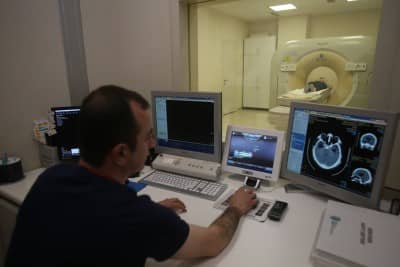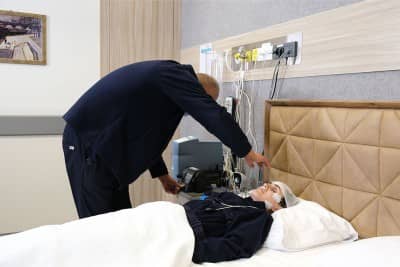
Neurological diseases is a general name given to the diseases that the science of neurology deals with. Neurological diseases are determined according to the diagnosis.
Symptoms of neurological diseases may differ with the diagnosis of the disease. Some neurological diseases may show similar symptoms, but when examined in detail by a specialist, the current disease is determined and diagnosed.
Each disease involves an individualized diagnosis and treatment procedure. Therefore, the same disease may present with different symptoms in different people. It is not possible for a person to make a self-diagnosis of neurological diseases. A diagnosis can be made by being evaluated by a neurologist and undergoing detailed examinations.
In the treatment of neurological diseases, a plan is made according to the diagnosis. In the treatment plan, in addition to medication, additional treatments are applied to support the current situation and to ensure improvement or delay deterioration.
In the treatment of neurological diseases, an individualized treatment plan must be determined and if the patient stops treatment, unfortunately, the current situation may change. This is why the relationship between the patient and the doctor is so important. In order for the treatment to proceed in a healthy way, the patient, the patient's family and the doctor should maintain healthy communication.
Neurological diseases are within the scope of neurology.
Diseases that Neurology is interested in;
- Headaches (migraine and tension pain, cluster pain, chronic headaches)
- Epilepsy or epilepsy (small seizures or large seizures, epileptic seizures requiring surgery)
- Strokes, strokes or cerebrovascular diseases (caused by vascular blockages, hemorrhages, bubbles and vascular anomalies)
- Forgetfulness (Alzheimer's and other dementias, dementias due to vitamin and hormone deficiencies, dementias due to increased brain water pressure)
- Muscle diseases (myasthenia gravis, myopathies)
- Multiple Sclerosis (MS) and other inflammatory diseases of the brain
- Brain infections (encephalitis)
- Dizziness (vertigo)
- Facial paralysis (facial paralysis)
- Spinal cord diseases
- Peripheral nerve involvement diseases (neuropathies, neuropathies caused by diabetes or other diseases)
- Nerve compression (carpal, tarsal, cubital and other nerve compression) and resulting numbness
- Sudden severe shooting pains (trigeminal and glossopharyngeal, occipital neuralgia)
- Movement disorders (Parkinson's, dystonia, tremors or tremors)
- Involuntary movements (twitching, cramps)
- Sleep-related disorders (jumping, walking, restless legs syndrome, sleep paralysis)
- Diseases of early degeneration of nerve cells (ALS, motor neuron diseases)
- Neck, back pain and herniated discs














